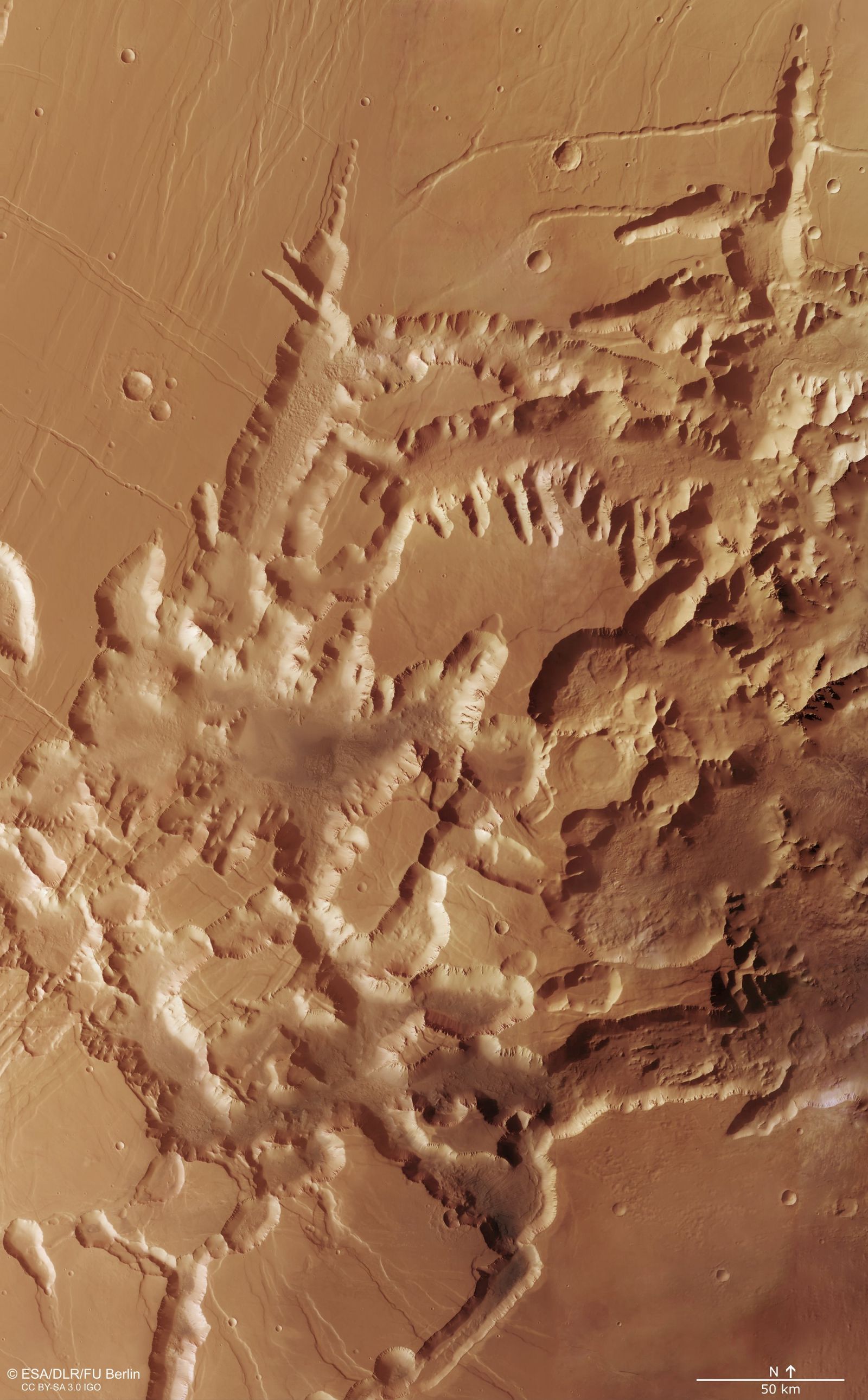Noctis Labyrinthus: The Image of an Astonishing Maze on Mars
Follow us on Google News (click on ☆)

Noctis Labyrinthus, seen by Mars Express.
Image Credit: ESA/DLR/FU Berlin, CC BY-SA 3.0 IGO
The ESA's Mars Express satellite, orbiting Mars since December 2003, has captured these breathtaking images. The surface of Noctis Labyrinthus is evidence of complex geological processes, including volcanism, which has stretched and thinned the Martian crust, leading to the formation of cracks. This site is located at the junction of the western edge of Valles Marineris, often compared to Earth's Grand Canyon, and Tharsis, the largest volcanic region on Mars, home to 12 major volcanoes.
Since the beginning of its mission nearly 20 years ago, Mars Express has not only captured spectacular images of the Red Planet but has also revealed the history of water on Mars, supporting the idea that the planet may have once had conditions conducive to life.
Mars Express: A Scientific Journey Around Mars
The Mars Express spacecraft consists of two main parts: the orbiter, which orbits Mars, and the Beagle 2 lander, intended to land on the Martian surface (although this part of the mission was unsuccessful). The orbiter, however, has succeeded in providing valuable data and unprecedented images of the Red Planet.
The scientific instruments aboard Mars Express are varied and advanced. They include stereoscopic cameras for 3D mapping, spectrometers for analyzing mineral and chemical composition, and radars for detecting water beneath the surface. These tools have collected crucial data on Mars's topography, climate variations, and the presence of water, in the form of ice, in the polar regions.
One of the major discoveries of Mars Express concerns the hydrological history of Mars. The data collected indicates that the planet might have harbored liquid water in its past, raising questions about the possibility of ancient life on Mars.